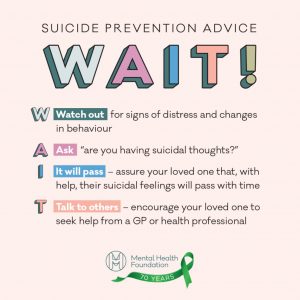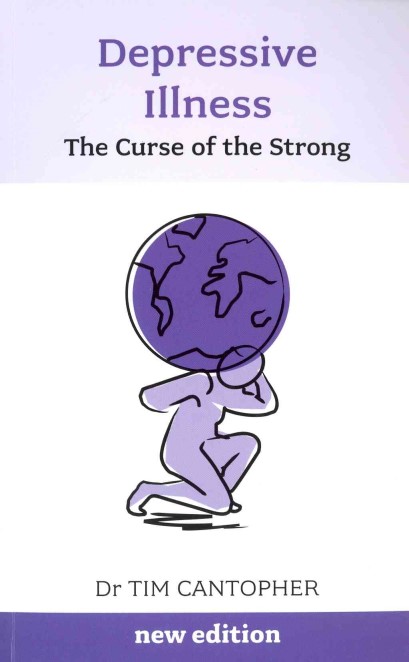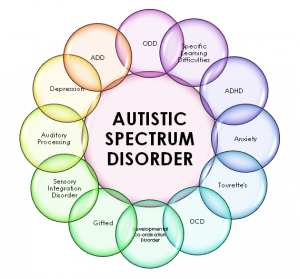On Tuesday 10th September 2019 it was World Suicide Prevention Day. It is organised by the International Association for Suicide Prevention and is supported by the World Health Organization. Suicide is a complex issue, but in many cases it can be prevented. Warning signs that someone is contemplating or planning suicide can include:
|
Back to me. I’d been struggling with my mental health for some time. My mood was (and still is at times) so low. I was/still am at times in a very dark place. Showing some of the warning signs above.
So I went to my GP. I was very honest about how I was feeling. My GP referred me to the Crisis Team for immediate assessment. After being assessed by them, I waited to be seen by the Home Treatment Team. I waited for what seemed like forever and just wanted to go home to bed. However I was warned that if I left the Police would be called to bring me back. I saw someone from the Home Treatment Team and in under 5 minutes she decided that I needed an admission to a Mental Health Ward.
I spent fifteen days mostly waiting on the ward. Waiting for the next meal, the next medication, the next time I would be reviewed by a doctor. There were activities, but I just wasn’t well enough to participate in them, especially at the start of my stay. My limited concentration span and extreme tiredness being restrictive.
The care that I received during my admission, as well as the care I observed other patients receive was quite frankly unsafe and caused physical, mental and emotional harm. There were some good aspects to the care – like that most of the staff were kind and compassionate. But these good aspects did not make up for the poorer aspects of care. I’m still not well, after a fifteen day admission they still haven’t managed to sort out my medication to fully balance my mood.
I plan to write an exposé report with the issues I experienced or observed other patients experience in relation to the care on the ward, along with suggestions on how they could improve the care given. This is a brave thing to do, especially as I will do it knowing I may end up requiring care on this ward again in the future. But as a Nurse I feel it is my duty to do so and that it would be unethical to say or do nothing.
So the update:
- I’m now on 3 mood stablisers: Aripiprazole (External Link to HeadMeds) – new for me, Depakote (started on this earlier this year) and Quetiapine (put back on this).
- My mood is good in the morning, but then crashes and is very low in the evening and at night.
- I’m now struggling to remain asleep and often wake up wide awake several times in the early hours of the morning.
- I’m seeing someone from the Recovery Team later this week and have already requested a medication review.
- Steve, my mum and my sister-in-law to be have all been amazing.
- Worryingly I still see the same warning signs that I was displaying before being admitted to hospital.
That was my World Suicide Prevention Day 2019 and what’s happened since. Take Care & Blog Soon,
Antony
P.S – Whilst researching more about World Suicide Prevention Day for this blog post, I came across this really good Infographic, that you might find useful to know about, by the Mental Health Foundation:
P.P.S – A plug for my book:








